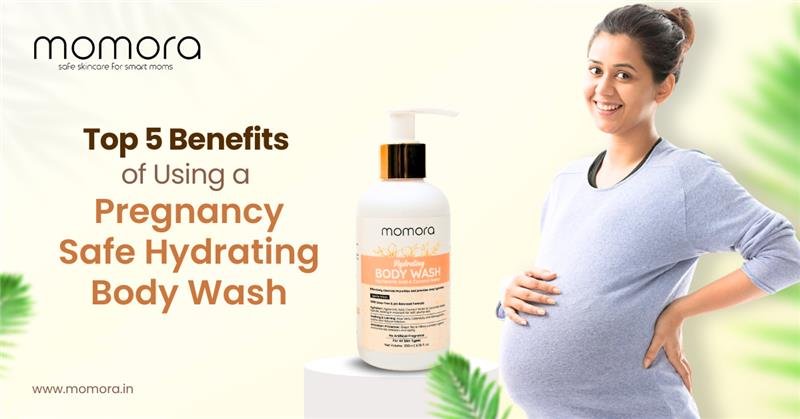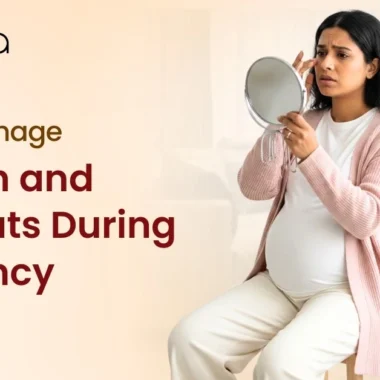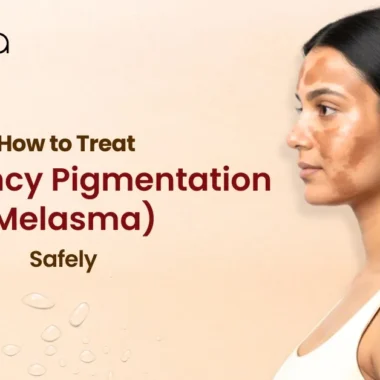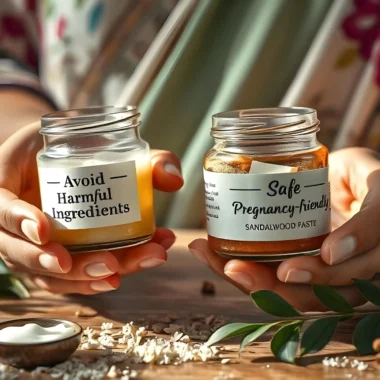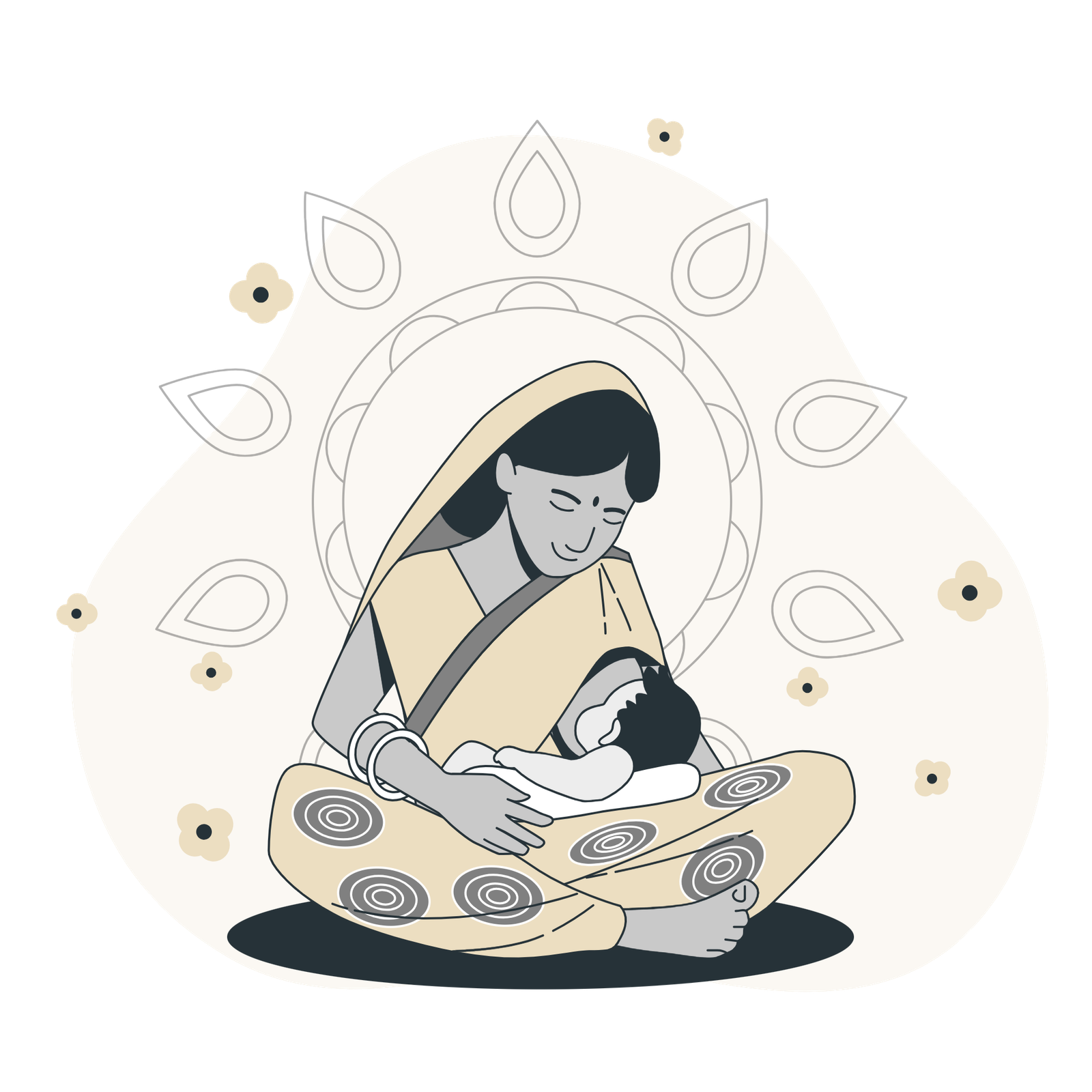Pregnancy changes so much about your body and sometimes your skin shows those changes first and Breakouts during this time can feel unexpected and even discouraging at times, especially when you’re hoping for that “pregnancy glow.”
The reality is that pregnancy acne is incredibly common and most of the time, it’s nothing to worry about. Many moms experience it and you just have to learn how to manage it safely and gently, without putting yourself or your baby at risk.
But some common questions around this:
What causes it? Can I avoid it? Can I prevent it altogether?
To answer all that, let’s first understand a few basics, shall we?
What Causes Acne During Pregnancy?
- Hormonal changes: During pregnancy, your body produces more progesterone, a hormone that supports your baby’s growth. But this also makes your oil glands more active. The extra oil (called sebum) can easily clog pores, which is why breakouts suddenly appear even if you’ve never had acne before.
- Stress, diet, and lack of sleep: Pregnancy comes with its share of restless nights, odd cravings, and of course stress about all the changes. These factors can accumulate and show up on your skin. Stress hormones and oily foods may trigger flare-ups, while less sleep means your skin has less time to heal and repair itself.
- When it usually appears: Pregnancy acne tends to show up most in the first and second trimesters, when your hormones are fluctuating the most. For some women, it fades later on, for others it may stay until delivery. The silver lining? It typically fades away once hormone levels stabilize after childbirth.
Is It Safe to Treat or Better Left Alone?
In most cases, pregnancy-related acne is mild and usually clears up after childbirth.So usually, you don’t need to worry much. But it is important not to self-medicate. Some acne treatments are harmful during pregnancy.
So please don’t blindly trust Google or ChatGPT.
Always check with a dermatologist, especially if the acne is painful, cystic, or spreading or if it’s causing you distress or emotional discomfort.
How to prevent acne during pregnancy:
Skincare
- Use mild, soap-free cleansers: Wash your face with gentle and fragrance-free cleansers and warm water twice a day but remember not to overdo it.
- Avoid harsh activities: Skip your regular skincare if it contains strong ingredients like retinoids or high-concentration salicylic acid which are usually off-limits during pregnancy. Always carefully check the ingredients, especially in products like night creams and anti-aging serums.
- Go for water-based lotions: These don’t clog pores and are less likely to irritate pregnancy-sensitive skin.
- Yes, moisturize—even if you have oily skin: Over-drying can actually trigger your skin to produce more oil to balance it out. A light, non-greasy moisturizer can help maintain balance.
- Don't pick or pop your pimples: it’ll worsen inflammation, cause infection and can long leave scars.
Tip: Always consult your doctor if acne gets worked up or persistent.
Diet
- Eat more low-glycaemic foods: These don’t spike your blood sugar too fast. Food like fruits, veggies, and whole grains would do.
- Limit fried, sugary, and spicy foods: Occasional cravings are okay, but too much can trigger inflammation and excess oil production.
- Stay hydrated: Drink plenty of water throughout the day buttermilk, coconut water and lemon water to flush out toxins and keep your skin fresh.
Natural Remedies for acne
- Multani mitti (Fuller's earth): Helps soak up excess oil and soothe inflammation. Blend with rosewater and gently apply a thin layer to your skin. Don’t let it dry out fully and rinse once semi-dry.
- Neem paste: Known for its antibacterial properties, neem can help reduce breakouts naturally. Make a paste from fresh leaves and apply it directly to the affected areas.
- Turmeric and curd mask: Turmeric is valued for its anti-inflammatory and healing properties. Mix a pinch with fresh curd or honey for a gentle face pack—you can also add aloe vera for a soothing, cooling effect.
Tip: Always patch the test first. If irritation starts, stop immediately.
Lifestyle
- Keep your pillowcases clean
- Avoid touching your face too much
- Keep hair clean and away from your face
- Avoid tight clothing or hats, especially when sweating
- Practice stress management prenatal yoga, meditation, journaling has shown some really good results in stress relieving as well.
When Medication is Needed
In some cases, your doctor may suggest prescription treatments for mild-to-moderate acne, these are often topical creams like Azelaic acid, Topical antibiotics etc
But again, these should be used only after consulting a dermatologist. Not all creams are pregnancy-safe, and even commonly used products might not be suitable during this time.
Also, don’t forget about your mental health. Acne during pregnancy can impact self-confidence, lead to anxiety, and even social isolation. You’re not alone—this is completely normal and doesn’t define you.
Say goodbye to pregnancy acne safely.



